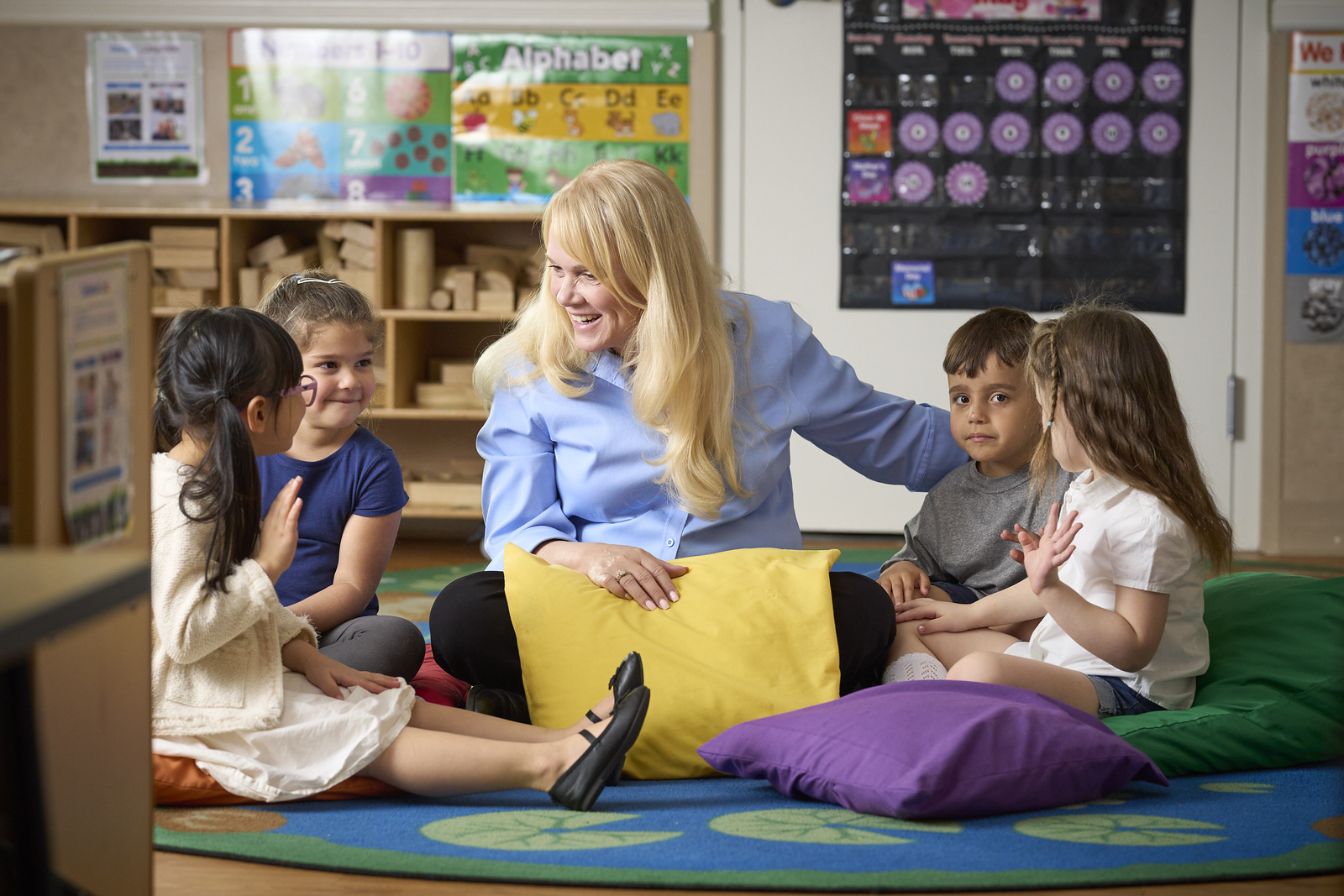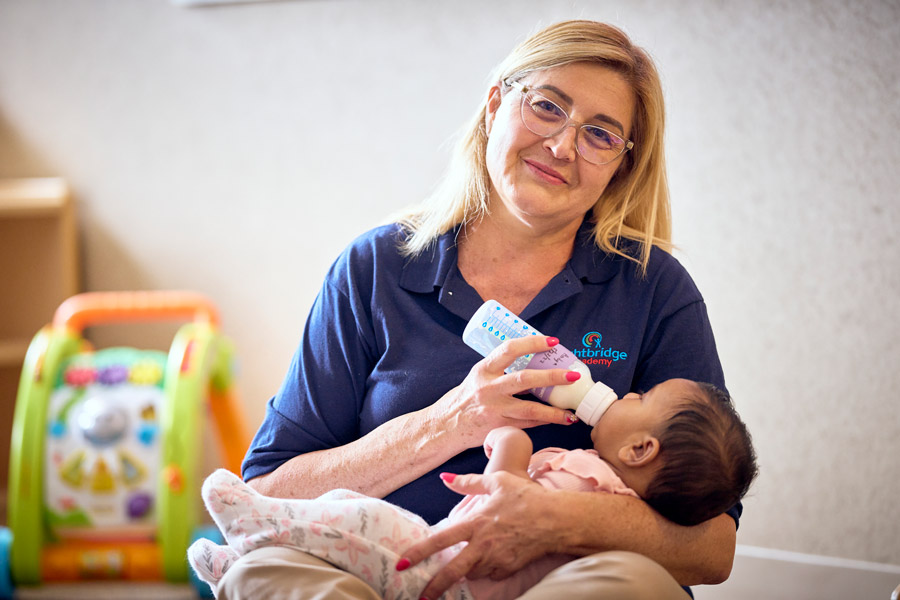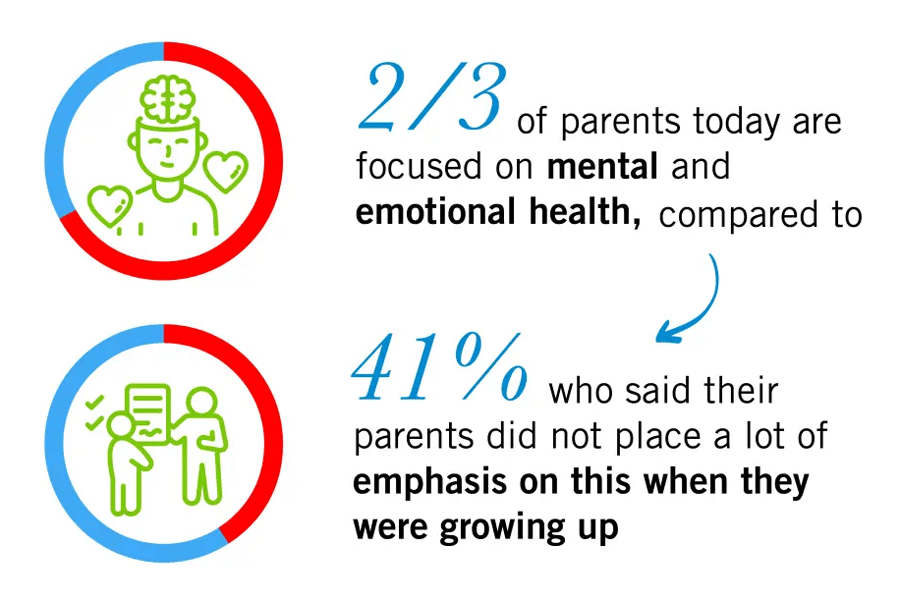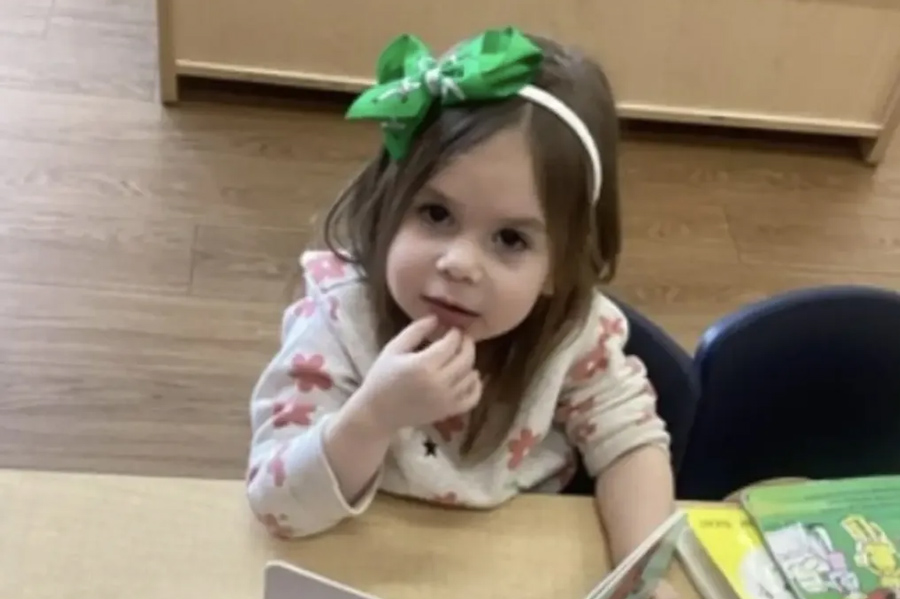By Gigi Schweikert, CEO of Lightbridge Academy, Mom, and Proud New Grandmother
If there’s one thing I’ve learned over the years—first as a mom, and now as a new grandmother—it’s that parenting is a journey of love, learning, and evolution. And right now, we’re in the middle of a truly meaningful shift.
A new study confirms what I’ve seen so often in both my personal life and in our early childhood centers: today’s parents are intentionally choosing to raise their children differently than they were raised. In fact, six in ten parents of young children say they’re stepping away from the parenting style of their own upbringing in favor of a more modern, mindful approach.
Conducted by Talker Research on behalf of Lightbridge Academy, this survey of 2,000 parents of children ages 0 to 6 highlights what families are prioritizing today—and how those choices are shaping the next generation before they even begin school.
Raising the Whole Child
Many of us grew up in households where the focus was on academics, following rules, and staying physically active. Those things still matter. But what’s exciting to me is how today’s parents are widening the lens.
According to the research, parents are still prioritizing education (69%) and physical activity (65%), but they’re also putting a strong emphasis on emotional and social growth. Things like communication (74%), confidence (57%), listening skills (64%), and emotional regulation (46%) are now seen as essential building blocks.
It’s clear to me that parents today aren’t just raising smart kids—they’re raising kind, self-aware, resilient people. And that’s a beautiful evolution.
Parenting with Intention
As a mom, I remember the many moments of second-guessing, trying to balance structure and softness, and doing my best even on the hardest days. Now, as a grandmother, I get to see my own daughter raise hers—with thoughtfulness, compassion, and a fresh perspective.
This generation of parents is embracing approaches like positive and respectful parenting, helping their little ones build healthy relationships from the start. And while no parent is perfect (the average parent admits to five missteps a week!), what shines through is their commitment to growth—for their children, and for themselves.
Nearly 9 in 10 parents say they’ve become better people since having children. That statistic resonates deeply with me. Parenting stretches us—and helps us become more patient, present, and purposeful. It’s through that growth that we model the very resilience we hope to nurture in our children.
Community Makes the Difference
Parenting may look different today, but one thing hasn’t changed: it still takes a community. And that community begins with trusted partners. In the study, 91% of parents who used daycare said their provider played a key role in their child’s development.
At Lightbridge Academy, we are honored to be part of that partnership. We strive to create nurturing, values-aligned environments where children feel safe, supported, and seen—where families feel that their goals for their children are our goals, too.
Eighty-five percent of parents said it’s important their community reflects their values, and we couldn’t agree more. That shared vision is what allows children to thrive and begin building the confidence and resilience they’ll carry into the world.
Growth for the Whole Family
One of the most beautiful parts of this study? It reminds us that parenting changes all of us. Parents are working on their own well-being too—whether it’s self-care (48%), maintaining a healthy lifestyle (43%), or being more emotionally present (40%).
And it’s working. Nearly eight times as many parents believe their current approach is more effective than how they were raised (47% vs. 6%). Even though 42% admit they sometimes slip back into old habits, they’re aware—and making conscious efforts to evolve.
As a grandmother, I’m watching this new generation of parents grow right alongside their children. It fills me with so much hope. They’re not just parenting with love—they’re parenting with purpose.
The Journey Ahead
Parenting today comes with new challenges, yes—but also new awareness, new tools, and a deep desire to raise not just capable children, but compassionate humans.
To all the parents forging a new path: I see you. I admire you. And as someone who’s walked the road of motherhood and now watches my children do the same, I want to say—you’re doing something truly meaningful.
Let’s continue walking this journey together, with care, courage, resilience, and community.






